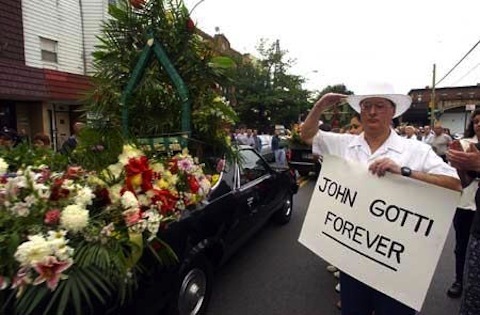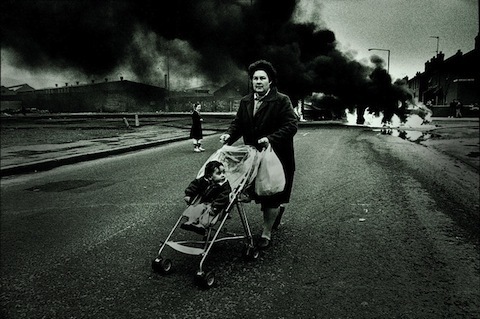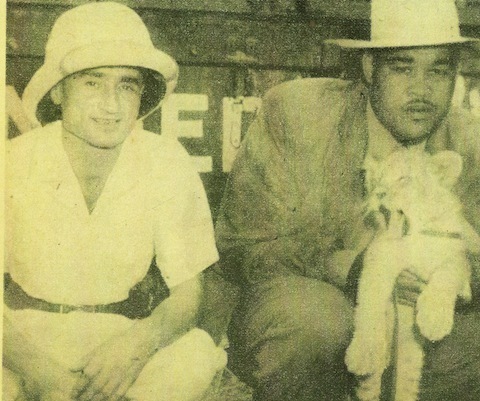Brendan I. Koerner's Blog, page 26
February 24, 2012
A Note of Gratitude
Just wanted to offer a quick bayarlalaa to y'all for sticking with this project over the past few weeks. Been hectic times here at Microkhan global headquarters, what with the book deadline looming and both the health-insurance and education systems conspiring to make the fam miserable. Better days ahead, for sure.
The Forces Arrayed Against Nachos
I'm a sucker for creative metrics, such as measuring a creature's ferocity by how quickly it can skeletonize a cow. One of my favorites is the way in which a nation's development is assessed by how rapidly it's being colonized by Western franchises. Take Indonesia, which is revealed here to be "opening a new convenience store every five to six hours."
Yet the world's biggest convenience-store chain, beloved nachos purveyor 7-11, has not found Indonesia to be the most welcoming of environments. Though its stores are now legion in Jakarta and elsewhere, 7-11 is on the defensive thanks to Indonesia's penchant for genteel corruption:
After evaluating and issuing restrictions on minimarkets across the capital, the Jakarta administration has now set 7-Eleven convenience stores in its sights.
Following the issuance of a gubernatorial instruction specifically targeting 7-Elevens, Adi Ariantara, the head of the city's economic bureau of the city administration, said the government would review the stores based on both the new instruction and a 2006 gubernatorial regulation on restaurants…
"We held an evaluation meeting on Sevel stores. We found that out of 57 in Jakarta, only 15 had proper licenses," he said.
It was not clear why 7-Eleven was the only convenience store chain targeted by the new gubernatorial instruction. Adi said his office would review 7-Elevens based on a 2002 regional regulation that stipulated that modern markets up to 200 square meters in size should be located at least 500 meters from traditional markets. If they are between 200 and 1,000 square meters, they should be at least a kilometer away from such markets. Supermarkets and hypermarts must be at least two and a half kilometers from any traditional market.
According to data from the regional administration in 2011, Jakarta was home to 1,868 minimarkets. Of those, 1,443 of them did not have all the required permits, and some had none at all.
Okay, so let's read between the lines here, shall we? Six years after a law is written, 7-11 becomes the only company to be threatened with store shutdowns—right as competition for customers is becoming most intense due to rising economic activity. Why do I get the feeling that 7-11 can only fix this problem through the liberal distribution of bribes?
February 23, 2012
A Corner Turned
Back to the book today, after receiving some tragic news about one of the lead characters. Make do with some classic Joan Jett from the heyday of West German television. Back tomorrow about Indonesia's raucous business climate.
February 22, 2012
A Perverse Incentive

I'm a few pages from the end of Kevin Myers' Watching the Door, the peak of which is an extended discussion of how The Troubles became economically advantageous for both sides. I particularly enjoyed this dissection of how Belfast's various paramilitary organization profited off the mayhem they created:
Glaziers—who, because they were associated with the building industry, tended to be Catholic—were in huge demand simply because of the bombings. Even a small explosion could break scores of windows; a large one simply hundreds. Bloody Friday, in all its extravagant generosity, had shattered many thousands of windows. The British government footed the bill for the damage, and there was barely any serious auditing of glazier bills. What government department counts broken windows?
Since glaziers were being made rich by the Troubles, the IRA thought it only right that it should get some of the vast amounts of government money pouring through their coffers, so it did. Glaziers paid the IRA (and in loyalist areas, by the same logic, the UVF or the UDA) protection. So, the British government was effectively subsidizing the Troubles; the more damage the terrorists did, the more money they would get‐and not just through glaziers, but through the entire building industry. As a matter of pride, the British government insisted on bombed buildings being reconstructed. Then they would be rebombed. Then rebuilt. Then rebombed…
A nice racket for the men with guns. And a good reason why they had so little incentive to negotiate an end to the violence.
(Image via Jez Coulson)
February 21, 2012
Bending the Rules

Far be it from me to shed a tear for a murderous scoundrel whose various scams increased the price of everything in my adopted hometown. But did John Gotti get a raw deal when the Catholic Church denied him a funeral mass? A scholar makes the case here (PDF), arguing that the Church broke its own rules regarding how to deal with mafiosi:
Carlo Gambino was one of the more notorious mafia individuals in history, yet even he was able to receive the rite denied to Gotti. Gambino, who was the head of the New York mafia prior to [Paul] Castellano, was linked to dozens of "hits." Nevertheless, when he died of a heart attack in 1976, still very active within organized crime, the Church raised no protest regarding his funeral…The Church also deemed Joseph Bonanno, known to some as "Joe Bananas," deserving of a funeral Mass when he passed away of natural causes in May of 2002. Bonanno had been credited with being a creator of the American mafia and all evidence seems to point toward him being responsible for dozens of killings.
There is little doubt that Gotti was in a similar situation as Bonanno, both aware of his fate and having been removed from the criminal element for quite some time. The obvious difference between a Paul Castellano and a Carlo Gambino is not the way in which they lived their life, but how they died. Based on this "precedent," it appears that the Church believes that a public death leads to "public scandal," and accordingly, a funeral Mass should be denied. Naturally, after comparing Gotti with these other individuals, one is left with the impression that Gotti's situation is similar to that of Gambino, Bonnano, and Dellacroce, rather than that of Castellano, De Cicco and the Spilotros. Based on this line of reasoning, it is asserted that John Gotti, having died in a hospital, in a very non-public manner, deserved full funeral rites.
The Church's decision-making process was obviously affected by society's changing attitudes toward organized crime, which were reflected in the way that Gotti was portrayed in popular culture. Who said the ecclesiastical hierarchy is totally incapable of sensing which way the wind blows?
February 17, 2012
The Exchange

Tough to believe I just recently stumbled upon this treasure trove of Roma-related information, which includes a bevy of rare photos and dozens of audio-enhanced oral histories. I came across the project while trying to get a better sense of what it's like to endure aerial bombardment—more on that soon—but I ended up most absorbed in the accounts of Roma wedding practices. I was particularly drawn by what the interviewees had to say about the payment of dowries, a practice that strikes me as economically ruinous. Yet the Roma of Kosovo remain great defenders of the tradition, as illustrated by Hazbije Vičkolari's pro-dowry argument:
Q: Would it be better to dispose of the dowry in the future?
HV: No- it's better to ask for the dowry, because the groom didn't work hard to raise and care for my daughter. I did that. To pay the dowry is much better because they (the bride's family) have worked hard. You'll sell your house to be able to marry your son. They'll keep and respect the girl more; she'll be part of their home. Again, though, if the bride does not obey them then the dowry should be returned.
As this interview makes clear, there has been a steady escalation in dowries over the years, despite the Roma community's relative penury:
Q: Could you us about the wedding customs you followed?
ED: The customs are the same. The only difference is that our families didn't have to spend a lot for the bride price, like today. In the past a bride cost only one or two horses.
All of this seems like it can lead nowhere good, as evidenced by the ill effects that dowries seem to have in other parts of the world. As I've discussed in this space before, there is an irresistible human impulse to one up each other in matters of honor—even if, in the end, the maintenance of that honor becomes wholly destructive.
February 15, 2012
Built to Spill

Was just about to post about Roma wedding rituals when a health-insurance catastrophe struck. Can't believe how hard they're screwing us right now—jetting into town to see if I can fix anything through bribery and/or high-volume yelling. Back soon.
February 14, 2012
Long in the Tooth

Based on my formative experiences with BJ and the Bear reruns, I've long imagined the archetypal American trucker as a picture of health. But the men and women who brings goods to market are actually a pretty grizzled lot these days (PDF):
The average age of a truck driver in the United States is over 48 years. Since 2000, the number of service and truck drivers 55 or older has surged 19%, to about 616,000, according to the federal Bureau of Labor Statistics.
That age figure is particularly disturbing in light of the shorter-than-average life expectancies of truckers (also PDF):
Data on active OOIDA members who had died suggest that the average age of death for OOIDA members is only 55.7 years. While this sample is not random and is biased toward those actively in the work force and under special pressures encountered by owner-operators, at face value Mr. Siebert considered these numbers alarming. Using OOIDA member data, he reported that 49.5% of OOIDA members were obese, compared to only 31% of the overall U.S. population. Only 12.7% of OOIDA members were normal weight, compared to 36% of the overall U.S. population. Mr. Siebert also reported that 13 out of 430 recent OOIDA deaths (3%) were from suicide.
The question I've yet to see adequately addressed is why the truck-driving profession is having such a tough time attracting young blood. The most common explanation is that companies are reluctant to add payroll, and are thus driving their older employees into the ground, so to speak. But my hunch is that there's something innate to the profession that doesn't sit well with folks in their twenties. The sense of isolation, perhaps?
February 10, 2012
The Downward Spiral

I'm sorely tempted to launch a whole new Microkhan series about the late-career floundering of high achievers. I'm just fascinated by this concept of how the truly great cope with the inevitable diminishment of their skills, as well as the revelation that they really should have taken better care of their personal affairs while riding high on the hog. Their most common tactic is to rage, rage, rage against the dying of the light, in increasingly undignified ways—until, at some point, they either spiral out of control or achieve some measure of peace. The journey to that denouement is a narrative arc that has been too seldom explored in modern storytelling. (Yes, yes, I know about The Wrestler. What else you got?)
I'll start with the tale of Joe Louis, circa 1950, when the former champ found himself deeply in debt and several steps slower than the latest generation of pugilists. That May, he abandoned his plans to recapture his heavyweight crown, choosing instead to join the Dailey Brothers Circus:
Under terms of the contract, Louis will receive a guarantee of $1,000 per day, with the total amount of the pact calling for $75,000, making Louis one of the highest priced features ever presented by a circus…
Louis will join the Dailey organization at Port Huron, Mich., May 23 and makes his first public appearance with the circus at Sarnia, Ont., May 24. The contract also provides that Louis be furnished with a private railroad car for himself and staff of five.
Strange that the article doesn't describe what duties were expected of Louis. Did he simply stand in the center of the ring and accept the astonished applause of the circus's audiences? Or was he compelled to show off a few boxing moves, to delight those without televisions who had only heard his fights on the radio?
Whatever the answer, I can see a great play growing out of this scenario. Act One, Scene One opens on Louis's private railroad car as he crosses the border into Canada, preparing for his first circus appearance. What is going through his mind at that moment?
(Image via The Circus Blog, which I cannot recommend more highly)
February 8, 2012
The Supple Flesh of a Champion
My tremendous thanks to everyone who turned out for last night's live performance in Soho, at which I hopefully did a passable job of explaining Yuriy Sedykh's physical genius. There was one technical hiccup for which I must apologize, though—the video of Sergey Litvinov, the Soviet Union's golden boy of the hammer throw, cut out after a mere six seconds. As promised during my on-stage recovery from the mini-disaster, I'm posting the clip here for your perusal. The highlight is the masseuse's expression.




